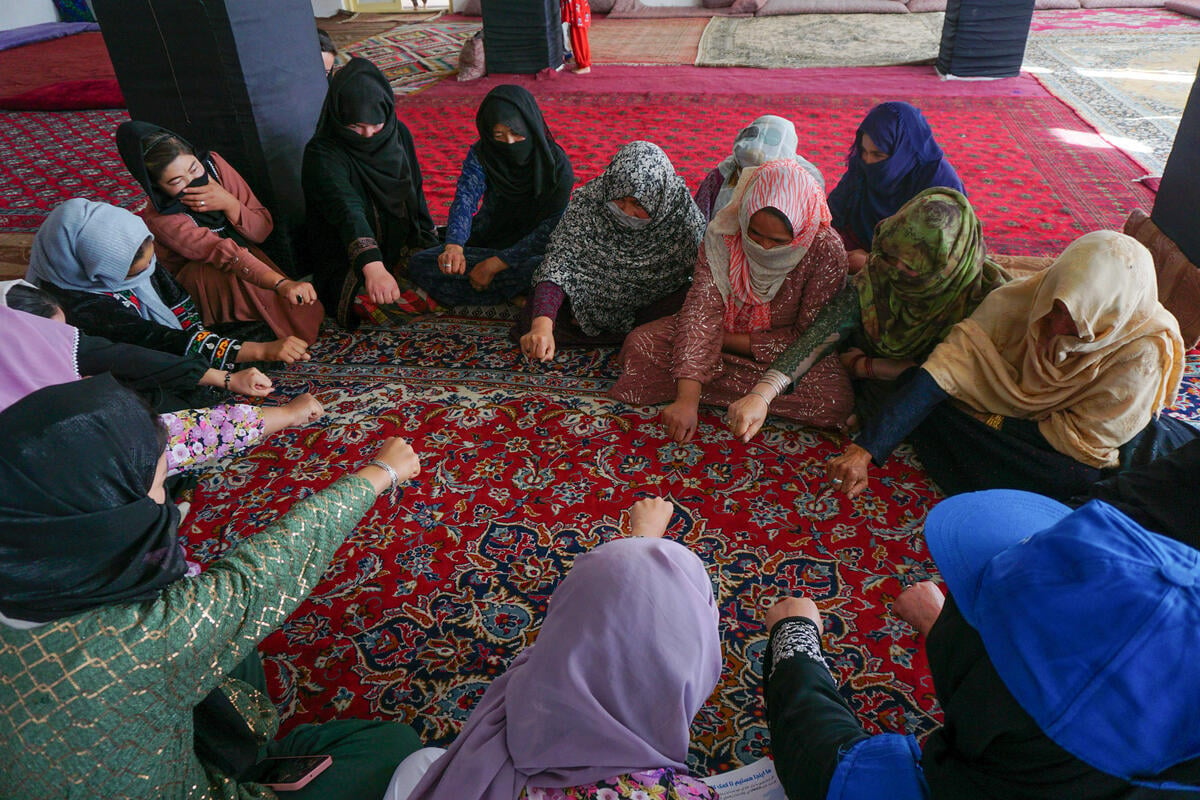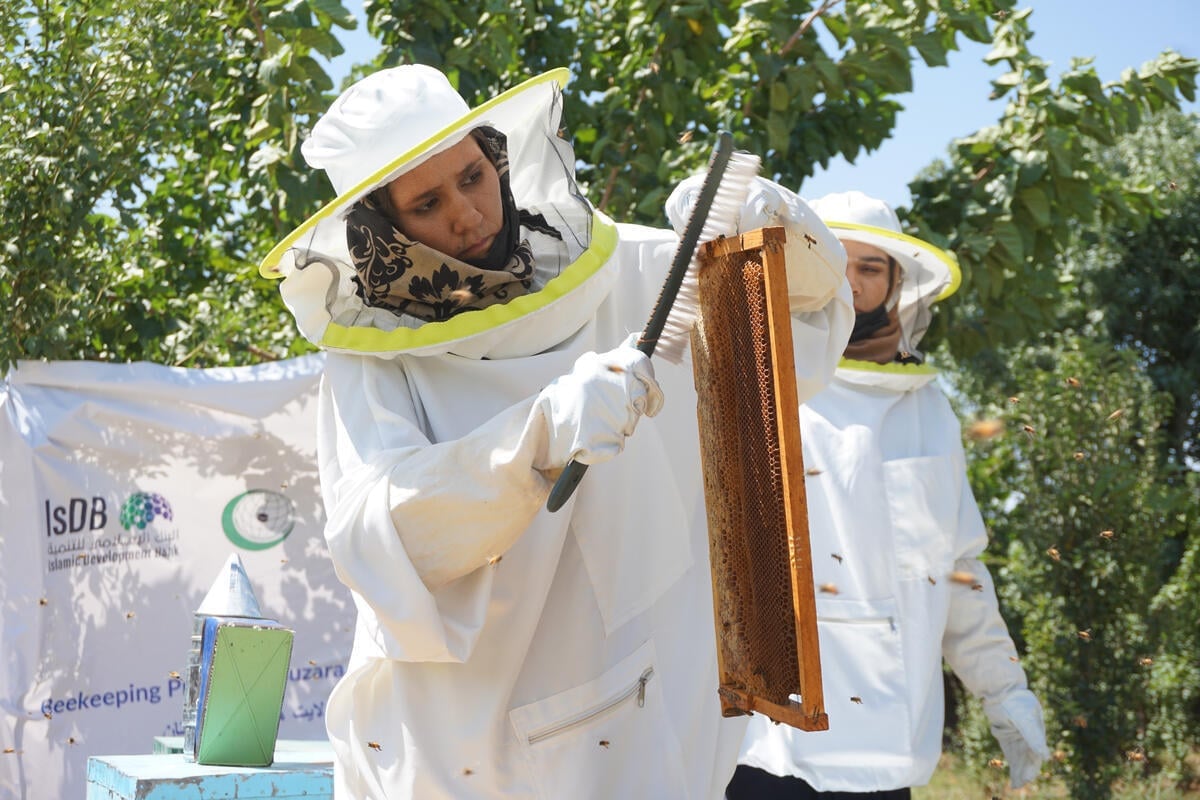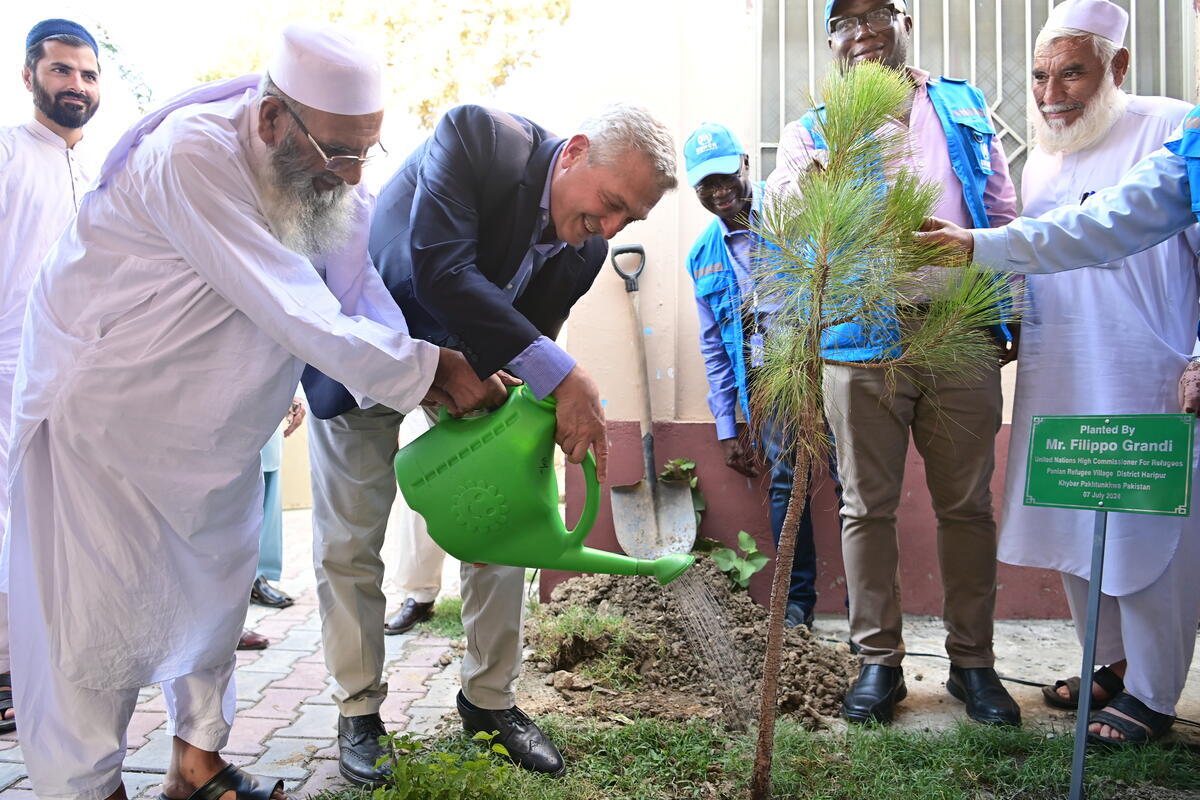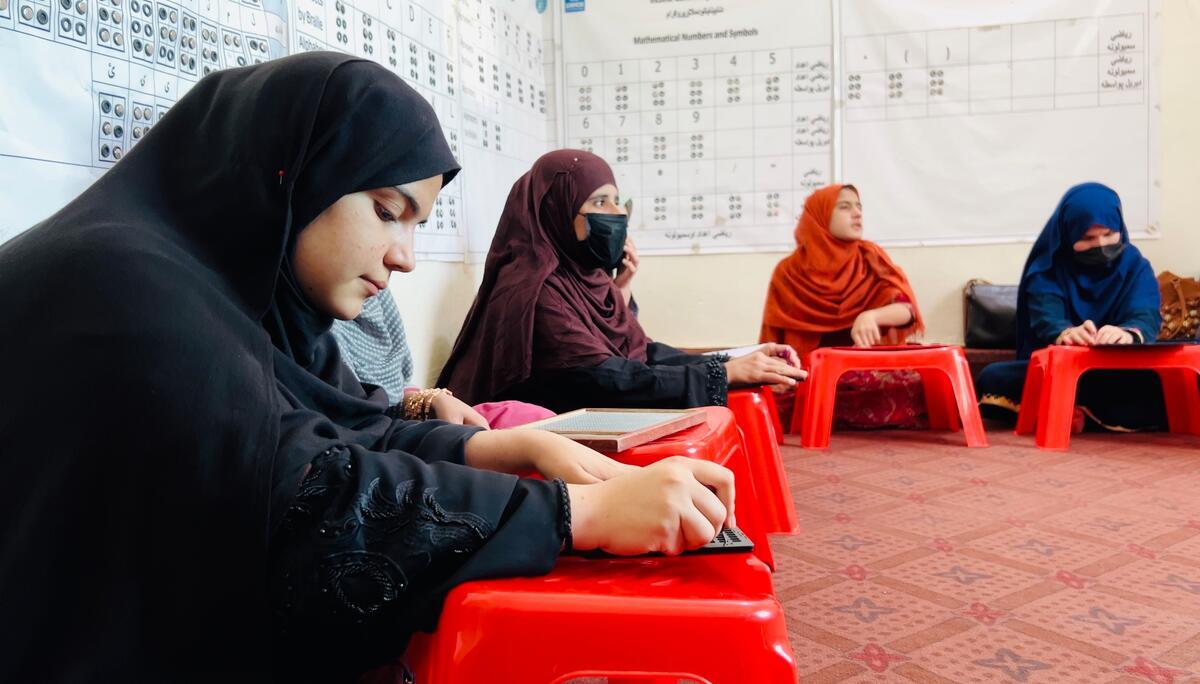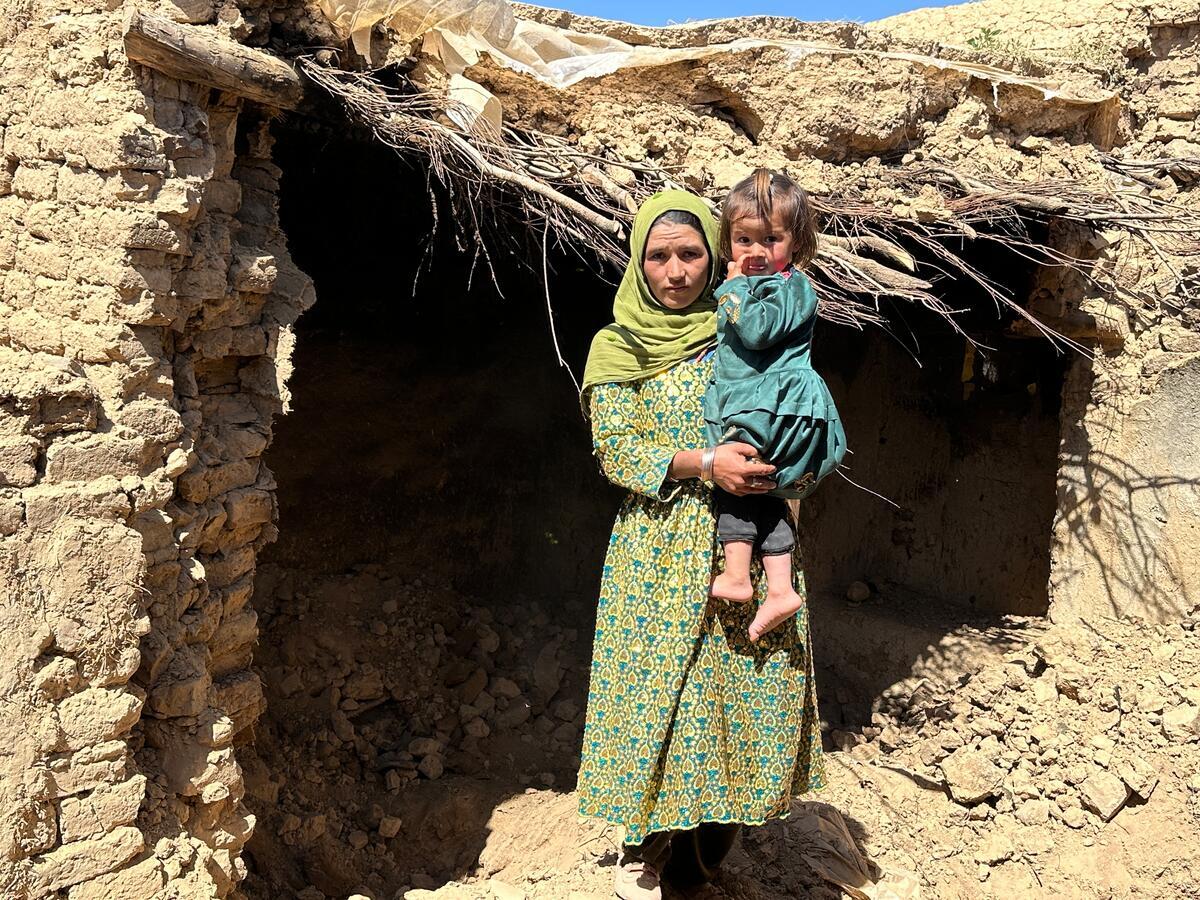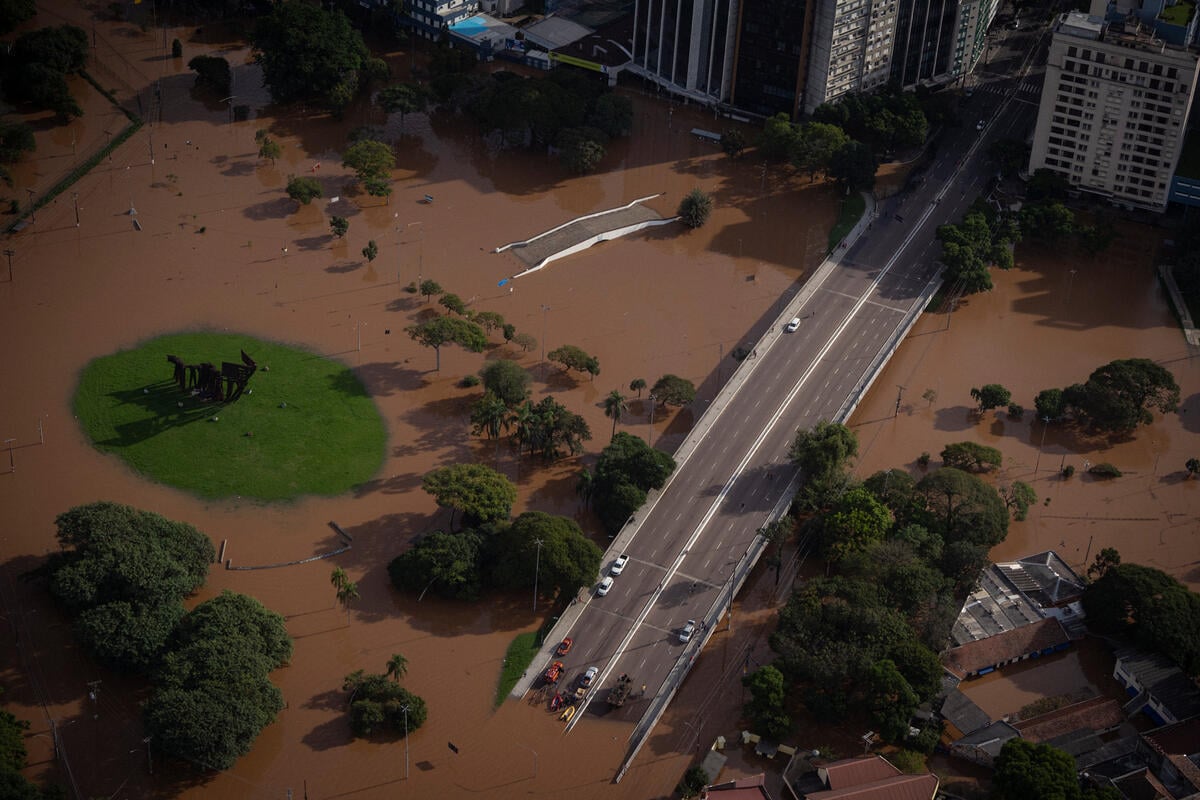Afghanistan: Sweden sets generous funding example
Afghanistan: Sweden sets generous funding example
Today marks the start of the facilitated repatriation of Afghan refugees from Iran as 146 persons returned via the Islam Qala crossing point, west of Herat. UNHCR is planning for up to 400,000 Afghans to return from Iran this year. Iran hosts more than 1.5 million Afghan refugees.
Afghan refugees in Iran may register at one of the nine centres that have been established throughout the country before being transported up to the border aboard government-hired buses, where they undergo briefings about the danger of landmines and security conditions inside Afghanistan. Once at the frontier, Afghans board buses organised by IOM, which carry them to the provincial capital of their choice.
Families returning from Iran receive the same UNHCR assistance package of plastic tarpaulins, stoves, blankets, quilts, sweaters, hygienic materials and other items. They also get 150 kilogrammes of food aid from WFP, as do the returnees from Pakistan. They also receive $10 per person for transport to their home areas, half the sum provided to returnees from Pakistan, as transport up to provincial capitals is provided by IOM.
Security problems in Afghanistan have disrupted repatriation movements in other areas.
In Eastern Afghanistan, UNHCR has recommended that Afghan refugees halt returns via the Torkham border crossing following violence along the road from Torkham to Jalalabad yesterday. Three roadblocks have been erected by angry local farmers along the route to Jalalabad, and UNHCR staff are unable to reach the Mohmandar encashment centre where returnees from Pakistan receive their cash grants. The bombing in Jalalabad yesterday that killed several bystanders as the Afghan Defence Minister was passing took place near UNHCR's distribution centre, which is closed today. We hope that security can be restored throughout the region in the next days so that Afghans can again travel via the main Torkham crossing.
The roadblocks and tension in eastern Afghanistan have forced some 18,000 Afghans to delay their return home after registering over recent days at our Takhta Baig centre. Tension is rising at Takhta Baig, just outside Peshawar, where thousands await the reopening of traffic from Torkham into Afghanistan. The refugees are anxious as truck drivers charge them $6 a day while they wait at the crowded site, and everyone wants to see the situation resolved as soon as possible.
Elsewhere, in western Afghanistan, fighting has reportedly erupted around Zaranj, the provincial capital of Nimrouz Province. The tension has forced UNHCR to halt plans to repatriate Afghans from Iran directly to the region starting today. Instead we've had to send some 21 families homewards via Islam Qala, to the north.
Despite the tension in some border regions, a number of border crossings from Pakistan are still open. UNHCR's registration centre at Nawa Pass, north of Torkham, opened yesterday and is manned by a UNHCR registration team. We also have a centre at Balili, in Baluchistan Province, and UNHCR mobile teams are registering Afghan refugees in Pakistan as well.
On the funding front, UNHCR's financial situation continues to improve as countries respond to our calls for urgent funds to maintain the pace of the repatriation and rehabilitation efforts. Sweden has pledged $7 million for our Afghan operations, of which $5 million is in addition to its already-pledged annual contribution of $37 million. The High Commissioner appreciates the staunch support of Sweden, in both financial and political terms. In our efforts to obtain additional funds for the Afghan operation - so that this operation is not run at the expense of programmes in the rest of the world, particularly Africa - UNHCR hopes that many donors will follow the generous example of Sweden and some other donors.


